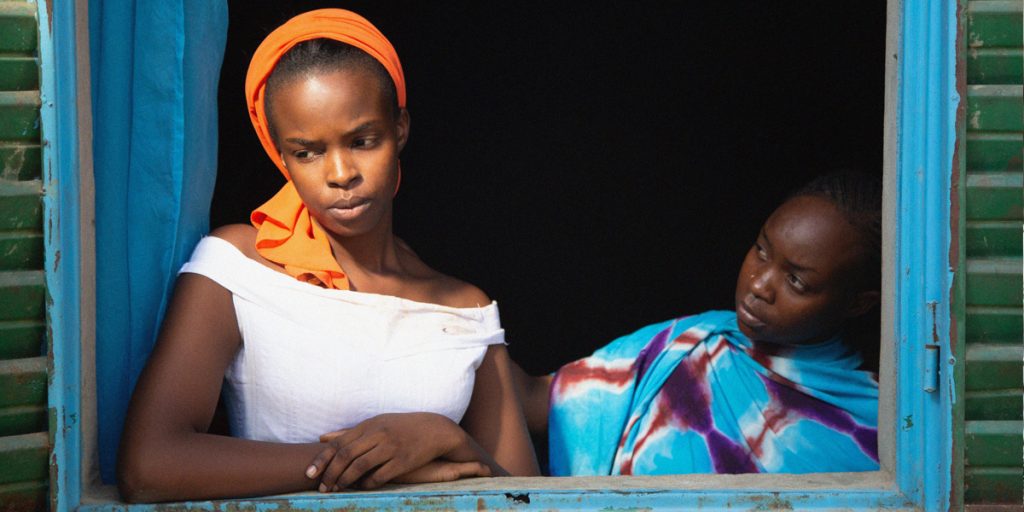Lingui, The Sacred Bonds creates an incisive political parable through purposeful visuals and refreshingly straightforward filmmaking techniques.
Lingui, The Sacred Bonds is the latest from Chadian filmmaker Mahamat-Saleh Haroun (Dry Season, A Screaming Man), having premiered at Cannes last year. In it we find Amina (Achouackh Abakar Souleymane), a single mother raising her fifteen year old daughter, Maria (Rihane Khalil Alio). Amina’s husband abandoned her years before, but she still carries with her the social taboo of being a single mother, though she tries to fit into her society by attending prayers and wearing traditional garb. She appears as the epitome of conservative womanhood. However, Amina’s carefully balanced life is thrown off course when she discovers that Maria is pregnant and wants to get an abortion.
Not only is extramarital pregnancy a major social stigma, abortion is illegal and goes against religious teaching. Does Amina further entrench herself in being a social outcast to help her daughter? Haroun, who directed and wrote the film, conveys his incisive political parable through a beautiful and purposeful realist aesthetic. His camera patiently glides through settings and carefully observes the troubles of his characters. While his storytelling is rather languid, there are many gorgeous visuals, touching moments, and probing observations that sustain the film.
Haroun knows exactly how to utilize cinematic language to his advantage. Take, for an example, an early scene when Amina comes home from work to find Maria obviously upset about something. Maria tells her mother that she’s okay, but Haroun shows this moment in a shot that has Maria on one side of the frame, and her reflection on the other. Through this shot, we understand that there’s a battle within her between telling the hidden truth and telling lies. In another scene after an argument between Maria and Amina, Maria runs from home, presented in a tracking shot showing her running from left to right. When Amina tries to find her daughter, we see her on the right side of the frame running left, the opposite direction. Using simple balanced editing techniques and showing the subject’s on opposite sides of the frame, Haroun presents their relationship fragmented at this moment; they haven’t yet reached an understanding.
Additionally, religion is central to the conflict in Lingui, it is one of the main institutions that keeps women shackled within the film. Haroun presents this idea throughout by using frames within frames, showing his women characters as trapped by their setting, which stands not just for the misogynistic religious teachings but also for society as a whole. In Lingui, society is blind to the plight of women, so they must rely on each other for support. Maria’s school expels her for becoming pregnant instead of helping her. Society punishes women for getting abortions rather than addressing any root causes, such as the harmful effects that patriarchy has on women.
In an interview, Haroum stated that the term “Lingui,” besides meaning the sacred bonds that connect people, alludes to solidarity in the face of adversity. This is exactly what Lingui, The Sacred Bonds is about, and Haroum demonstrates it with heart and beauty. Amina and Maria not only rely on each other, but on other women they meet along the way towards ensuring an abortion for Maria. While the narrative itself is rather familiar, Haroum’s direction elevates the story thanks to his keen eye for humanity and emphasis on filmmaking craft.
Lingui, The Sacred Bonds is now available to watch on digital and on demand.

 loudandclearreviews.com
loudandclearreviews.com
